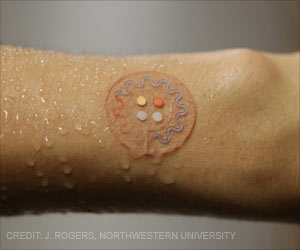The risk of breast, skin, and gastrointestinal cancer is higher in women, who do night shifts than those who work during the day.
Highlights
- Long-term night shift work in women was associated with risk for nearly a dozen types of cancer.
- Breast, skin, and gastrointestinal cancer was associated with night shift work in women.
- Nurses, compared to other professionals are at the highest risk of breast cancer.
Breast cancer is the most diagnosed cancer among women worldwide, most previous meta-analyses have focused on understanding the association between female night shift workers and breast cancer risk, but the conclusions have been inconsistent. The team analyzed whether long-term night shift work in women was associated with risk for nearly a dozen types of cancer.
The studies were analyzed for an association between long-term night shift work and risk of 11 types of cancer. A further analysis was conducted, which looked specifically at long-term night shift work and risk of six types of cancer among female nurses.
Cancer in Women Who Work At Night
Long-term night shift work among women increased the risk of cancer by 19 percent. The risk of
- skin cancer increased by 41%
- breast cancer by 32%
- gastrointestinal cancer by 18%
"We were surprised to see the association between night shift work and breast cancer risk only among women in North America and Europe," said Ma. "It is possible that women in these locations have higher sex hormone levels, which have been positively associated with hormone-related cancers such as breast cancer."
Among female nurses alone, those who worked the night shift had an increased risk of breast (58 percent), gastrointestinal (35 percent), and lung cancer (28 percent) compared with those that did not work night shifts. Of all the occupations analyzed, nurses had the highest risk of developing breast cancer if they worked the night shift.
The research team also performed a dose-response meta-analysis among breast cancer studies that involved three or more levels of exposure. They found that the risk of breast cancer increased by 3.3 percent for every five years of night shift work.
"By systematically integrating a multitude of previous data, we found that night shift work was positively associated with several common cancers in women. The results of this research suggest the need for health protection programs for long-term female night shift workers."
"Our study indicates that night shift work serves as a risk factor for common cancers in women," said Ma. These results might help establish and implement effective measures to protect female night shifters. Long-term night shift workers should have regular physical examinations and cancer screenings.
"Given the expanding prevalence of shift work worldwide and the heavy public burden of cancers, we initiated this study to draw public attention to this issue so that more large cohort studies will be conducted to confirm these associations," he added.
Study Limitations: A limitation of this work is a lack of consistency between studies regarding the definition of "long-term" night shift work, with definitions including "working during the night" and "working at least three nights per month." Additional limitations include significant between-study heterogeneity and publication bias.
Reference
- Xuelei Ma. Female night shift workers may have increased risk of common cancers. Cancer Epidemiology, Biomarkers & Prevention (2017).
- Ana Maria Pedraza-Flechas, Virginia Lope, Carmen Sánchez-Contador, Carmen Santamariña, Carmen Pedraz-Pingarrón, Pilar Moreo, María Ederra, Josefa Miranda-García, Carmen Vidal, Rafael Llobet, Nuria Aragonés, Dolores Salas-Trejo, Marina Pollán and Beatriz Pérez-Gómez. ‘High mammographic density in long-term night shift workers: DDM-Spain/Var-DDM.’Cancer Epidemiology, Biomarkers & Prevention (2017). DOI: 10.1158/1055-9965.EPI-16-0507.
Source-Medindia













